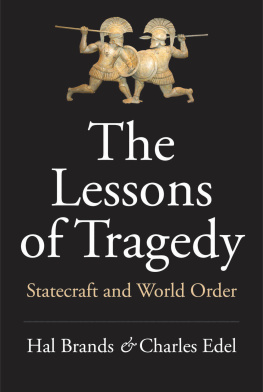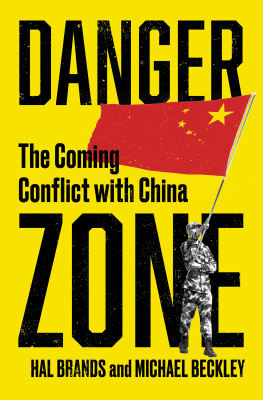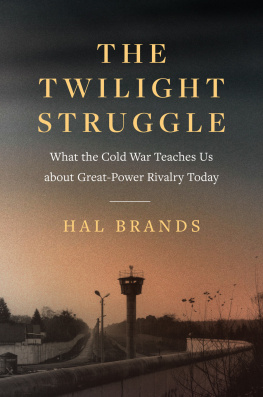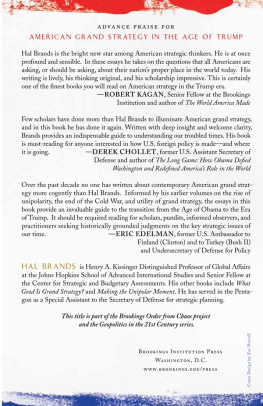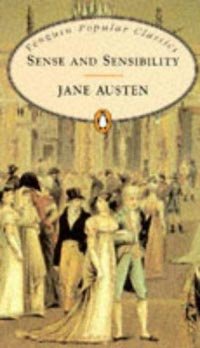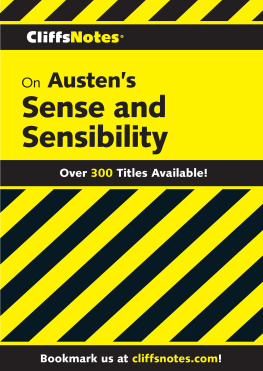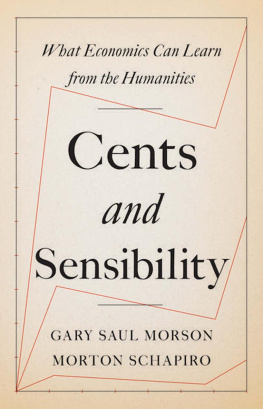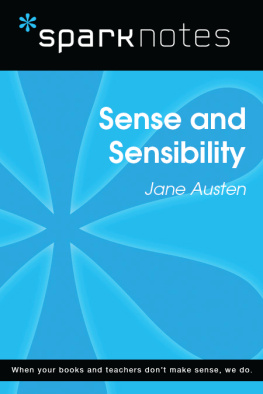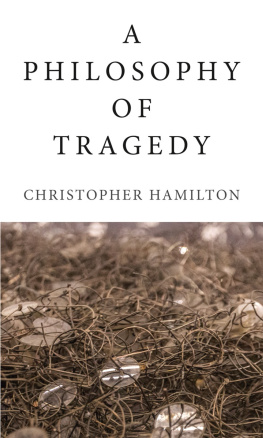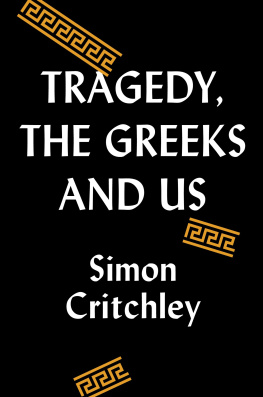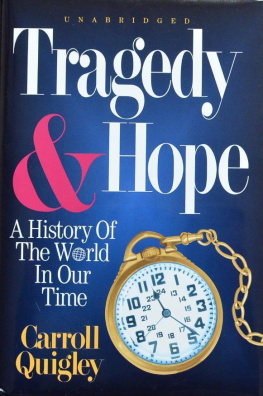The Lessons of Tragedy

Published with assistance from the income of the Frederick John Kingsbury Memorial Fund.
Published with assistance from the foundation established in memory of Philip Hamilton McMillan of the Class of 1894, Yale College.
Copyright 2019 by Hal Brands and Charles Edel.
All rights reserved.
This book may not be reproduced, in whole or in part, including illustrations, in any form (beyond that copying permitted by Sections 107 and 108 of the U.S. Copyright Law and except by reviewers for the public press), without written permission from the publishers.
Yale University Press books may be purchased in quantity for educational, business, or promotional use. For information, please e-mail (U.K. office).
Set in Minion type by IDS Infotech, Ltd.
Printed in the United States of America.
Library of Congress Control Number: 2018950176
ISBN 978-0-300-23824-2 (hardcover : alk. paper)
A catalogue record for this book is available from the British Library.
This paper meets the requirements of ANSI/NISO Z39.48-1992 (Permanence of Paper).
10 9 8 7 6 5 4 3 2 1
For Henry and Annabelle and Caleb and Henry
Contents
Acknowledgments
This is a short book, but we have accumulated a long list of debts. For lending their time, expertise, and support, we would like to thank Ross Babbage, Jim Baker, Frances Brown, Eliot Cohen, Eric Crahan, Ron Daniels, Charlie Davis, Peter Dutton, Liz Economy, Eric Edelman, Jeffrey Engel, David Epstein, Andrew Erickson, Peter Feaver, John Lewis Gaddis, Patrick Gaughen, Frank Gavin, Simon Goldfine, Gorana Grgic, Toby Harshaw, Charlie Hill, Will Inboden, Simon Jackman, Colin Jackson, Donald Kagan, Colin Kahl, Paul Kennedy, Michael Kimmage, Thomas LeBien, Tom Mahnken, John Maurer, Andrew May, Walter Russell Mead, David Milne, Siddharth Mohandas, Jared Mondscheir, Michael Morgan, Vali Nasr, Aaron Nygunes, Aaron OConnell, Michael OHara, Nikhil Patel, Mira Rapp-Hooper, Ely Ratner, Kori Schake, Drew Sheldrick, James Simpson, Jim Steinberg, Jeremi Suri, Adam Swaim, Julia Sweig, James Wilson, and Toshi Yoshihara. Whether they know it or not, this book was much enriched by their advice and support.
Having attended graduate school together, we were also lucky to end up working in government at the same time. Our experience there informed this book; we would like to thank the Council on Foreign Relations for making those experiences possible. We would also like to thank our institutional homesthe Johns Hopkins School of Advanced International Studies and the Center for Strategic and Budgetary Assessments for Hal, the U.S. Studies Centre at the University of Sydney for Charliefor providing intellectually stimulating environments. Hal would particularly like to thank Pablo Scuticchio, Emily Hardman, and Brogan Ingstad for their assistance in researching the book.
At Yale University Press, Jaya Aninda Chatterjee was a pleasure to work with, and Dan Heaton and Joyce Ippolito helped steer the book through the production process. Our agent, Rafe Sagalyn, provided much helpful advice and assistance. We would also like to thank the anonymous reviewer who provided many thoughtful and encouraging comments.
Last, but not least, a special thanks to our families for their constant supportBrands, Stallcups, Hsus, and Changs; Edels, McClellands, and Moriahs. Most important, we would like to thank those closest to home. Emily, Henry, and Annabelle and Kira, Caleb, and Henry made this work possible. This book could not have been written without them. Without them, it would not have been worth writing.
The Lessons of Tragedy
Introduction
O n April 4, 1968, traveling to a campaign rally in Indianapolis, Robert F. Kennedy learned that Martin Luther King Jr. had been assassinated. Kennedy took it upon himself to break the awful news to the largely African American crowd at the rally. Speaking without notes from the back of a flatbed truck, Kennedy reminded the anguished people before him that Kings life had been dedicated to love and justice. It was in service of those values that King had willingly exposed himself to mortal risk. In this difficult day, in this difficult time for the United States, Kennedy stated, its perhaps well to ask what kind of a nation we are and what direction we want to move in.
In answering that question he turned to the ancient Greeks. In words that might have seemed oddly detached, he told his listeners that his favorite poet was the ancient Greek tragedian Aeschylus, and reminded them that he, too, knew tragedy, having suffered the murder of a loved brother. Kennedy then recited from memory a passage from Aeschyluss play Agamemnon:
Even in our sleep, pain which cannot forget
Falls drop by drop upon the heart,
Until, in our own despair,
Against our will,
Comes wisdom
Through the awful grace of God.
Bobby Kennedy had first encountered these ideas when Jackie Kennedy gave him her copy of Edith Hamiltons classic The Greek Way after John Kennedys assassination. Hamiltons study of literature, arts, and philosophy made the point that the Greeks lived heroically. They willingly stared into the abyss of pain, despair, and disaster and somehow drew strength from those encounters. By contemplating the fragility and uncertainty of their lives, they summoned the will to act bravely, to bear the burdens of leadership, to make sacrifices in the service of great causes. In the same chapter he quoted in Indianapolis in 1968, Kennedy repeatedly underlined Hamiltons description of Aeschylus: Life for him was an adventure, perilous indeed, but men are not made for safe havens. The fullness of life is in the hazards of life. This was the message Kennedy tried to convey to an angry and distraught crowd in April 1968. Despite the nearly 2,500 years between ancient Athens and twentieth-century Indianapolis, the message of drawing inspiration from tragedy resonated.
This is not as surprising as it may sound. If there was one thing the ancient Greeks took seriously, it was tragedy. At the height of Athenian power and greatness in the fifth century BC, citizens of the worlds first democracy gathered annually to experience tragedy. Great theatrical productions were staged, presented to the entire community, and supported financially by the public treasury. The subject and plot lines varied, but the form and lesson remained consistent. Prominent individuals fell from great heights due to error, ignorance, and hubris. Societies faced disasters brought on by mistakes of commission and omission. The injunction to the Athenian citizenry was clear: the destiny of the state was in the hands of fallible men, and even in their hour of triumph great societies were perched on the precipice of catastrophe.
As Aristotle argued, this familiarity with tragedythis tragic sensibilityentailed an understanding of not the thing that has happened, but a kind of thing that might happen, and it was purposefully hard-wired into Athenian culture. Aristotle wrote about the effect of tragedy on an audience: that they somehow liked watching the fall of the great, as it produced a feeling of horror, leading ultimately to catharsis. The catharsis was key, as tragedies not only aroused pity and fear but were intended to spur the audience into recognition that the horrifying outcomes they witnessed were eminently avoidable. By looking disaster squarely in the face, by demonstrating just how quickly things could spiral out of control, the Athenians hoped their citizenry would be charged with the sense of mutual obligation and moral courage needed to avoid such a fate.
One of the reasons people still study the classics is that they reveal timeless, elemental truthsinsights about human nature and human relationships that are as applicable to our time as they were to their own. As secretary of state George Marshall remarked at the dawn of the Cold War, I doubt seriously whether a man can think with full wisdom and with deep convictions regarding certain of the basic issues today who has not at least reviewed in his mind the period of the Peloponnesian War and the fall of Athens. Indeed, the Athenians were onto something fundamental in their fascination with tragedy. For an understanding of tragedy remains indispensableas it always has beento the conduct of statecraft and the preservation of world order.
Next page
